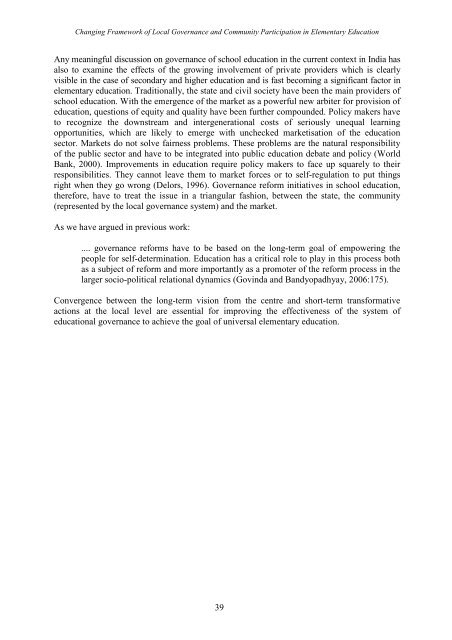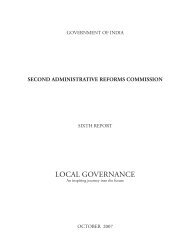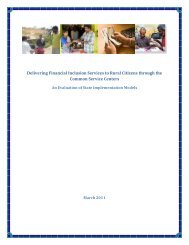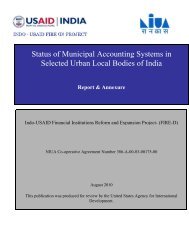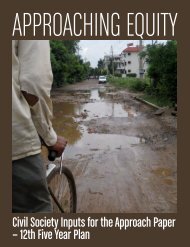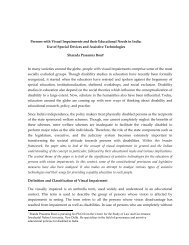Changing Framework of Local Governance and - Create
Changing Framework of Local Governance and - Create
Changing Framework of Local Governance and - Create
Create successful ePaper yourself
Turn your PDF publications into a flip-book with our unique Google optimized e-Paper software.
<strong>Changing</strong> <strong>Framework</strong> <strong>of</strong> <strong>Local</strong> <strong>Governance</strong> <strong>and</strong> Community Participation in Elementary EducationAny meaningful discussion on governance <strong>of</strong> school education in the current context in India hasalso to examine the effects <strong>of</strong> the growing involvement <strong>of</strong> private providers which is clearlyvisible in the case <strong>of</strong> secondary <strong>and</strong> higher education <strong>and</strong> is fast becoming a significant factor inelementary education. Traditionally, the state <strong>and</strong> civil society have been the main providers <strong>of</strong>school education. With the emergence <strong>of</strong> the market as a powerful new arbiter for provision <strong>of</strong>education, questions <strong>of</strong> equity <strong>and</strong> quality have been further compounded. Policy makers haveto recognize the downstream <strong>and</strong> intergenerational costs <strong>of</strong> seriously unequal learningopportunities, which are likely to emerge with unchecked marketisation <strong>of</strong> the educationsector. Markets do not solve fairness problems. These problems are the natural responsibility<strong>of</strong> the public sector <strong>and</strong> have to be integrated into public education debate <strong>and</strong> policy (WorldBank, 2000). Improvements in education require policy makers to face up squarely to theirresponsibilities. They cannot leave them to market forces or to self-regulation to put thingsright when they go wrong (Delors, 1996). <strong>Governance</strong> reform initiatives in school education,therefore, have to treat the issue in a triangular fashion, between the state, the community(represented by the local governance system) <strong>and</strong> the market.As we have argued in previous work:.... governance reforms have to be based on the long-term goal <strong>of</strong> empowering thepeople for self-determination. Education has a critical role to play in this process bothas a subject <strong>of</strong> reform <strong>and</strong> more importantly as a promoter <strong>of</strong> the reform process in thelarger socio-political relational dynamics (Govinda <strong>and</strong> B<strong>and</strong>yopadhyay, 2006:175).Convergence between the long-term vision from the centre <strong>and</strong> short-term transformativeactions at the local level are essential for improving the effectiveness <strong>of</strong> the system <strong>of</strong>educational governance to achieve the goal <strong>of</strong> universal elementary education.39


